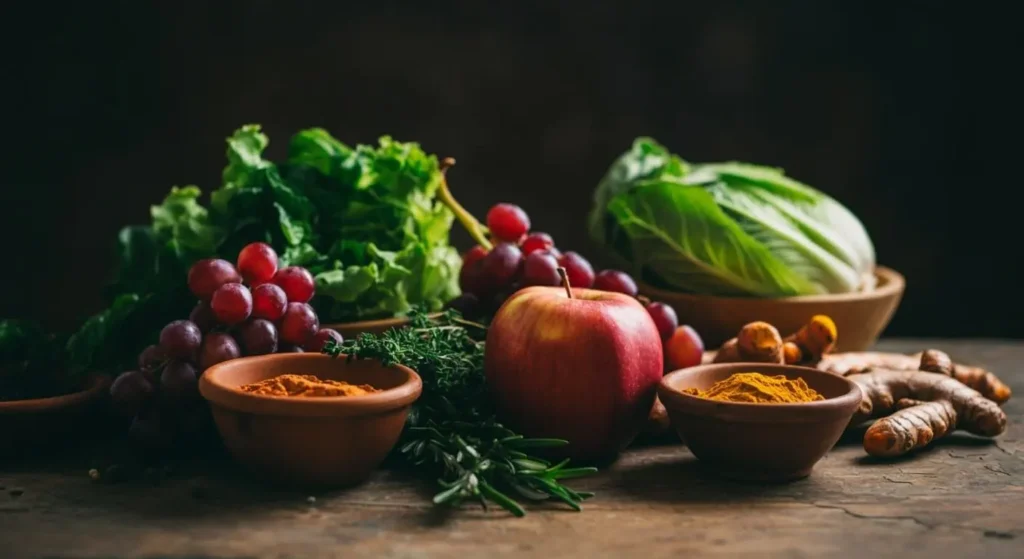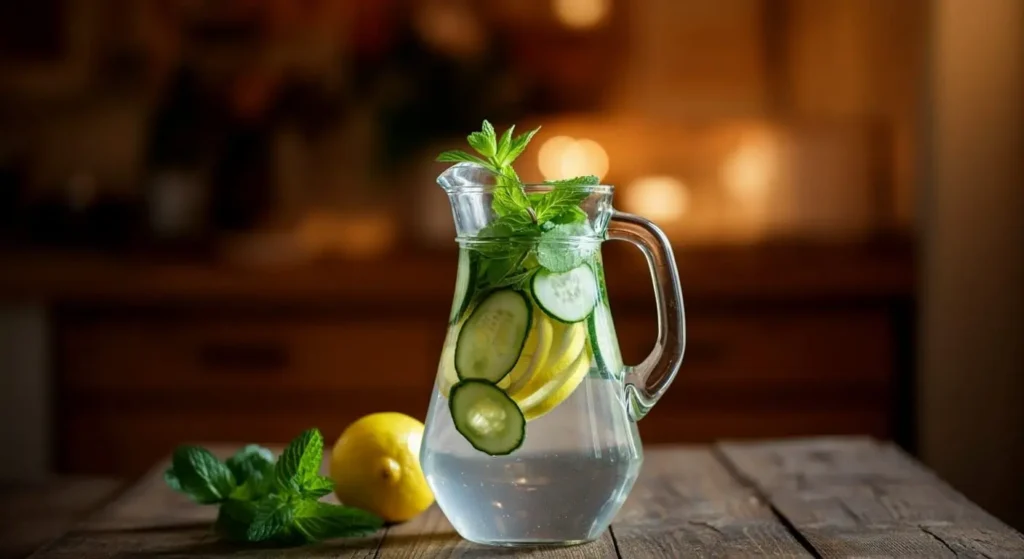

Discover how holistic detoxification practices combat PFAS and pollutants through alkaline diets, herbal supplements, and other natural approaches to cleanse your body from toxins.
We must agree that every day, there are more and more toxins and pollutants in our environment. We can find these in the air, the food we eat, products for personal care, and other products we use.
It is not strange that many people are looking for natural ways of detoxification. Holistic medicine already offers several solutions and methods we can follow to detox our organisms.
The holistic approach takes into consideration our physical body as well as our mind, energy, and spirit. In this article, we will take a look at some of the options holistic medicine has to offer for us to get rid of toxic elements in our bodies.
Let’s take a look at environmental toxins first.
These pollutants are often unnoticed but can be found all around us. In urban and industrial areas, the concentration is a bit denser, but you can also find heavily polluted zones in some natural areas. You can find toxic elements in the air, water, and food. What we read about the most are heavy metals like mercury and lead, pesticides, solvents, and various other chemical elements that disrupt our hormonal balance.
Some highly disturbing elements can often be found in personal care products.
We are speaking of PFAS, a toxin group that accumulates both in our physical bodies and in the environment. These elements are also called “forever chemicals”. One of such hazardous products that often contains PFAS is, for example, aqueous film-forming foam (AFFF) used by firefighters.
Studies show that this foam, which has been used for decades, presents a severe risk to your health and can even cause various types of cancer. The high-risk groups are especially people enlisted in the navy and military, who are exposed to AFFF during their training and emergency operations.
Therefore, the AFFF lawsuit Navy aims to address the toxic exposure linked to this firefighting foam. Standing at the side of the exposed victims, they are seeking compensation for all the pain they have gone through. This is just one example of an active case aimed at exposing the effects of toxins and pollutants connected to specific jobs.
But there are dangers everywhere, even in our daily lives.

The study titled “The Impact of Environmental Toxins on Cardiovascular Diseases” tackles the issue of the effect of environmental toxins on our cardiovascular health. The study, published in ScienceDirect, lists the key toxins that have the highest impact:
So let’s look at some of the solutions that can help us fight these hazards in a natural way.
Each person’s response to toxins is a bit different. Some might be affected more, some less. Some organisms will react immediately, and in others, the toxins might accumulate for a long time before symptoms become visible.
We never really know how exposed or affected we truly are.
The organs that are in charge of cleaning our body from toxins are primarily the liver, kidneys, and skin. The best simple way to support these organs and their natural detoxification processes is by implementing different diets.
These types of diets are tackling two correlated problems at once: acidity and inflammation.
Inflammation is an effect often induced by toxins in our bodies. And not just chemicals that are not supposed to be in foods. Here, we are talking about refined sugars, unhealthy fats, and a bunch of elements contained in processed foods. Eating lots of these types of food will make your body acidic, producing inflammation of different organs or body parts.
The alkaline diet prioritizes whole, unprocessed foods without added refined sugars. Also, white bread and pastry should be avoided. You should eat plenty of whole grains, fish, fruits and vegetables, legumes, nuts, and seeds. It is best to use olive oil, and you can also eat some low-fat dairy products.

According to Harvard Health, adding selected spices (for example, turmeric, cinnamon, cumin, ginger) to your meals will help your digestion and provide additional health benefits.
Eating foods that will make your body more alkaline than acidic will help on many levels.
The immediate result is reducing the potential for inflammation and creating an environment not suitable for different parasites and bacteria.
Also, fruits and vegetables contain antioxidants, which are also very important for fighting off disease. Antioxidants reduce the effect of free radicals, which are damaging our cells, leading to different health-related issues.
A simple rule of the alkaline diet is to focus on unprocessed plant-based foods, fruits, and vegetables, and avoid fat and oil, red meat, and dairy.
Nature’s herbal library offers a plethora of plants that support and enhance detoxification.
When looking online, you’ll most probably stumble upon herbs that support liver function, such as milk thistle or artichoke. One of the main ingredients is silymarin, which functions as a protectant of liver cells and the complete lymphatic system.
Artichoke supplements not only protect the liver from damage but also promote new tissue growth. It also supports the production of bile, which helps digestion and detoxification.
Healthline notes that research has shown that artichoke extract can reduce inflammation and liver cell death. According to studies, the effects are most prominent in people with fatty liver disease.
Moving to the lymphatic system, which often receives less attention, we have cleavers. This is a lesser-known herb with amazing effects. It speeds the lymphatic drainage and reduces swelling.
Another useful herb that helps detox is red clover. This flower purifies the blood and supports hormonal detoxification.

These are just a few examples. To find more, just do a bit of online research and look for natural and herbal detox supplements.
Did you know that in Finland, the life expectancy as of 2022 is 81 years (men and women average)? The fact that Finnish people live longer than residents of many other Western countries is often attributed to their saunas.
Many people don’t know this, but the skin is our largest detox organ, which eliminates toxins (even heavy metals and BPA) through sweating. Saunas are definitely one of the effective ways to induce sweating, the other is exercise.
When you exercise, the circulation of your bodily fluids is increased, and blood and lymph start flowing faster, both resulting in natural detoxification through sweating.
As for the saunas, there are many types. Most known are traditional Finnish, Turkish, and infrared saunas.

The growing popularity of infrared saunas reflects their effectiveness. For example, Verified Market Research reports that the infrared saunas market is about to reach USD 5.1 billion by 2031. This is at a CAGR of 7.3% during the forecast period from 2024 to 2031
The major reasons for this surge in the popularity of saunas are the benefits of sweating.
Besides being great for detox, regular visits to the sauna will improve the look of your skin, making it clearer, increase your circulation, and even raise your endorphin levels, leaving you in a good mood.
Staying hydrated is important for many reasons, one of them also being detoxification. The circulation of fluid through your system will help flush out the toxic elements. You can boost and support this process by drinking detox teas or infused water.
For infused waters, there are some combinations that are made specifically to support detoxification.
For example, you can combine lemon, cucumber, and mint. This combination is not only great for removing toxins but is also refreshing and alkalizing.

Lemon, ginger, and cayenne pepper are another great option. This mix aids digestion and improves circulation.
If you are looking for a more fruity taste, try combining lime, basil, and berries. You will get an antioxidant-rich mix with a great fruity and refreshing taste.
If you like your drinks hot, herbal teas offer a great detox option.
Some of the herbs we have to mention are, for example, nettle (supports kidney function), dandelion (supports liver detox), peppermint or fennel (general detox and digestion support), and tulsi (holy basil) – a multi-supportive herb great against inflammation, among other things.
Holistic detoxification is a method based on a holistic approach to human health that focuses on the detoxification process. It is not oriented solely towards fixing one organ or eliminating specific toxins but it approaches the process of detoxification holistically. This means it considers the complete body system – organs, fluids, skin, digestion, etc. Detox is holistically understood as a process bringing positive change not only on physical, but also on emotional, mental, and spiritual levels.
While fasting is not required for detox per-se it is a very supportive practice. If proper fast is applied alongside the detox process it can shorten the time needed to eliminate toxins and increase its effectiveness. We recommend a balanced approach – a healthy diet with fruits, vegetables, and unprocessed foods, hydration, exercise, and sauna, alongside supportive detox herbs or supplements.
Lymphatic massage will stimulate lymph fluid movement which helps flush out the toxins. However, it is very important to take a balanced approach – staying properly hydrated and preferably using some supplements to support liver function. This helps flush out the toxins that start flowing through the body due to lymph stimulation. Consider a lymphatic massage as a complement to the detox method you are using.
Several herbs are particularly effective for detoxification. Milk thistle and artichoke support liver function, with silymarin serving as a protectant for liver cells and the lymphatic system. Cleavers help speed lymphatic drainage and reduce swelling. Red clover purifies blood and supports hormonal detoxification. For hydration support, herbs like nettle (kidney function), dandelion (liver detox), peppermint or fennel (general detox), and tulsi (anti-inflammatory) are excellent choices.
The alkaline diet helps detoxification by making your body more alkaline than acidic, reducing inflammation and creating an environment unsuitable for parasites and bacteria. It prioritizes whole, unprocessed foods without refined sugars, focusing on fruits and vegetables rich in antioxidants that fight free radicals. A simple rule is to focus on unprocessed plant-based foods, fruits, vegetables, and avoid excess fat, oil, red meat, and dairy. Adding spices like turmeric, cinnamon, and ginger enhances digestion and provides additional health benefits.